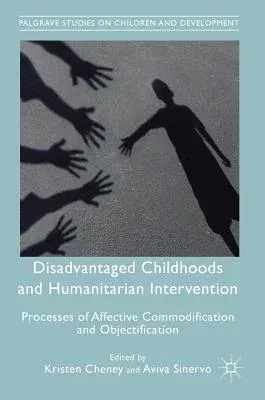Disadvantaged Childhoods and Humanitarian Intervention: Processes of Affective Commodification and Objectification (2019)Hardcover - 2019, 19 February 2019

Qty
1
Turbo
Ships in 2 - 3 days
In Stock
Free Delivery
Cash on Delivery
15 Days
Free Returns
Secure Checkout

Part of Series
Palgrave Studies on Children and Development
Print Length
232 pages
Language
English
Publisher
Palgrave MacMillan
Date Published
19 Feb 2019
ISBN-10
3030016226
ISBN-13
9783030016227
Description
Product Details
Book Edition:
2019
Book Format:
Hardcover
Country of Origin:
NL
Date Published:
19 February 2019
Dimensions:
21.01 x
14.81 x
1.6 cm
ISBN-10:
3030016226
ISBN-13:
9783030016227
Language:
English
Location:
Cham
Pages:
232
Publisher:
Weight:
449.06 gm